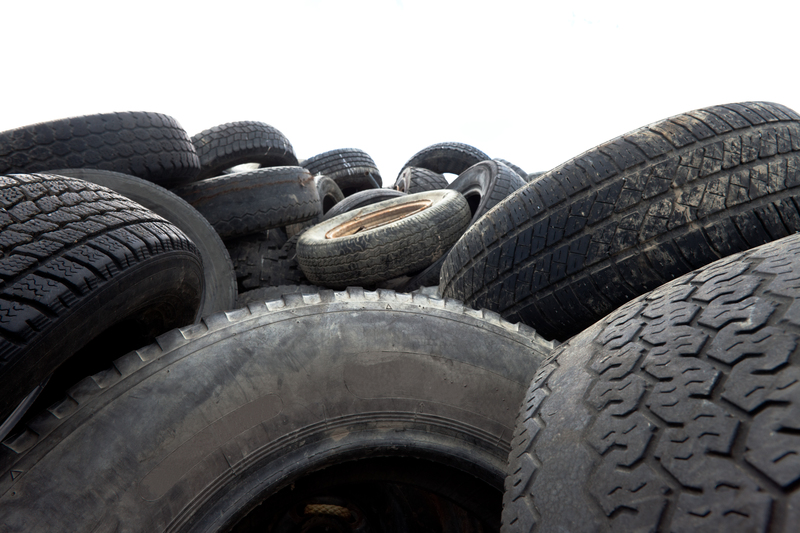Frugal Tips for Recycling and Removing Bulky Waste Items
Dealing with bulky waste items can be a daunting task. Whether it's an old couch, broken appliances, or worn-out mattresses, disposing of large items efficiently, affordably, and sustainably is a challenge for many households. In this comprehensive guide, you'll discover tried-and-tested frugal tips for recycling and removing bulky waste items--helping you save money, reduce landfill waste, and potentially give your unwanted goods a second life.

Understanding Bulky Waste Items
_Bulky waste_, also known as large or oversized items, refers to materials too large to fit in your regular garbage bins. Common examples include:
- *Furniture* (sofas, chairs, wardrobes, tables)
- *Large appliances* (refrigerators, stoves, washing machines)
- *Electronics* (TVs, computers, printers)
- *Mattresses and box springs*
- *Bicycles and exercise equipment*
- *Carpets and rugs*
- *Building rubble and garden waste*
Knowing how to deal with these oversized items in an eco-friendly and budget-conscious way can help keep your home clutter-free and your wallet happy.
Why Responsible Disposal of Bulky Items Matters
_Disposing of large items properly_ is about more than just clearing space--it's about environmental responsibility and community well-being. Here's why responsible disposal should be your goal:
- Reduces landfill waste - Many bulky items can be recycled, reused, or given to someone in need, preventing them from taking up valuable landfill space.
- Conserves resources - Proper recycling allows materials like metal, plastic, and wood to be reused in new products, saving energy and resources.
- Prevents pollution - Some bulky waste, especially electronics, can leak hazardous substances if tossed improperly.
- Supports your community - Donating or repurposing items helps local charities, families in need, and small businesses.
- Saves you money - Avoid costly landfill and special pickup fees by embracing frugal recycling strategies.
Frugal Tips for Removing Bulky Waste Items
1. Evaluate Before You Dispose
- Determine if the item is truly waste--could it be repaired, repurposed, or donated?
- Sell, donate, or give away items that still have life. Platforms like Craigslist, Facebook Marketplace, Freecycle, and local "Buy Nothing" groups can connect you with people who need your bulky item.
- Check if your neighborhood has a community swap event.
2. Use Municipal Bulk Collection Programs
Most cities and towns offer bulk waste pickup or special collection days. This can be free or cost much less than hiring a private hauler.
- Check your local government website for collection schedules and rules.
- Register for pickup in advance if required--slots can fill up quickly.
- Properly prepare items according to guidelines (disassemble, bundle, or place curbside at the right time).
3. Haul It Yourself (and Split Costs)
- If you have a suitable vehicle, consider hauling items to the dump, recycling center, or donation site yourself.
- Coordinate with neighbors to share transportation and split disposal fees (especially great for apartments or condos).
- Borrow or rent a truck inexpensively through friends, family, or local rental agencies.
4. Repurpose, Upcycle, or Repair
*What seems like waste to you might be an opportunity for creativity!*
- Repurpose old furniture into garden planters, bookshelves, or pet beds.
- Turn broken appliances into storage units, cabinets, or quirky decor.
- Use mattress springs, fabric, or wood for crafts or DIY projects.
- Search for "upcycling ideas for bulky items" online for inspiration.
5. Explore Free Drop-Off Options and Recycling Centers
- Local recycling depots often accept bulky waste items such as electronics, mattresses, and scrap metal at little or no charge.
- Some manufacturers and retailers offer take-back programs for old appliances and electronics.
- During community cleanup events, organizations may accept specific bulky items free of charge.
- Ask about *special recycling days* for items like tires, mattresses, or appliances.
6. Donate to Charities and Nonprofits
Many national and local charities accept gently used bulky items. Sometimes, they even provide free pickup!
- Habitat for Humanity ReStores, Salvation Army, and Goodwill typically accept furniture and appliances.
- Check with shelters, churches, and community centers for donation needs.
- Avoid donating items that are unsafe, dirty, or broken beyond repair.
7. Use "Junk Removal" Services Wisely
- If frugal or free options aren't feasible, compare rates for junk removal services.
- Ask about discounts for multiple items, seniors, veterans, or curbside-only service.
- Choose a company committed to recycling and donating items, not just sending everything to the landfill.
- Request a quote before booking to avoid hidden fees.
Frugal Tips for Recycling Specific Bulky Waste Items
Recycling Furniture
- Disassemble large items to make transport easier and to sort recyclables (metal, wood, upholstery).
- Remove and bundle fabric or foam from couches and chairs--many areas let you recycle these separately.
- Offer quality pieces on freecycling platforms or to students, new renters, or charitable organizations.
- Consider refinishing or painting wooden furniture for a fresh look or new use in your home.
Disposing of Appliances and Electronics ("E-Waste")
- Certified e-waste recyclers often accept appliances and electronics (sometimes at no cost).
- Retailers and manufacturers may operate trade-in or take-back programs--sometimes offering a rebate or discount.
- Never put electronics in regular trash--this can cause serious environmental harm.
- Make sure to erase personal data from computers, tablets, or phones before recycling or donating.
Getting Rid of Mattresses and Box Springs
- Some areas have mattress recycling programs, which break down and reuse mattress materials.
- Call your local sanitation department or recycling center for guidelines.
- If donating, be sure the mattress is clean, free from pests, and in usable condition.
- Use mattress bags for curbside pickup to keep them dry and protected.
Recycling or Disposing of Carpets and Rugs
- Many carpet retailers offer removal and recycling when you purchase new flooring.
- Some recycling centers accept carpets and rugs--call ahead to check exemptions or restrictions.
- Cut carpets into manageable pieces for easier handling and transport.
- Consider donating gently used area rugs to local pet shelters or housing charities.
Creative and Cost-Effective Ideas for Reusing Bulky Items
Turn Bulky Waste into Community Resources
- Use old furniture as "freecycle" materials for school or community construction projects.
- Donate scrap metal to art programs or local makerspaces.
- Offer wooden pallets to gardeners or urban farmers for compost bins or raised beds.
Online Marketplaces and "Curb Alerts"
Today's online communities are a goldmine for bulky item disposal and recycling:
- List items for free pickup on Nextdoor, Facebook Marketplace, or Freecycle with "Curb Alert" in the headline.
- Take clear photos and describe the condition honestly.
- Set out items at the curb safely, keeping walkways clear.
- Be safe--never share your address until someone is confirmed to pick up.
Money-Saving Mistakes to Avoid When Disposing of Bulky Waste
- Paying high fees for convenience when a free or low-cost option exists.
- Not checking with your landlord or HOA--sometimes they offer seasonal pickup or recycling services.
- Improperly dumping bulky items, which is illegal and can result in fines.
- Missing local recycling or disposal events that offer free drop-off for bulky waste.
- Overlooking the value or usefulness of old items that can be resold or repurposed.

Key Takeaways: Frugal Bulky Waste Disposal Done Right
- _Think before you throw_--reuse, sell, donate, or recycle whenever possible.
- Leverage municipal services, events, and programs for the most budget-friendly removal.
- Collaborate with neighbors and the community to save money and hassle.
- Get creative with repurposing and upcycling for a greener approach.
- Always stay informed about local regulations and recycling opportunities.
Conclusion: Small Steps, Big Impact
Recycling and removing bulky waste items doesn't have to be expensive, stressful, or wasteful. With these frugal tips for bulky waste recycling and disposal, you can approach your next cleanout project with confidence, knowing you're making smart choices for your budget, your home, and the planet.
Remember: the best waste is the waste you avoid. By choosing to repair, reuse, repurpose, and donate, you actively contribute to a circular economy--one that values materials, reduces landfill strain, and builds a stronger community.
Embrace these frugal, practical strategies for recycling and removing bulky waste items, and make your home cleaner, your wallet fuller, and your world a little greener.
